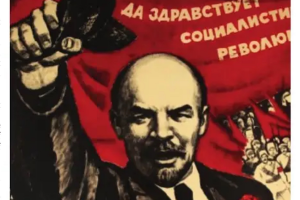Bal Gangadhar Tilak captured the mood of our nation when he uttered“Swaraj is my birthright”. After 75 years of Swaraj one can paraphrase that sentiment and assert, “Education is my birthright”.
After 34 long years a novel education policy has emerged from a committee headed by my good and respected friend Dr Krishnaswamy Kasturirangan, former chief of ISRO and dreamer and architect of the Chandrayaan project. A very distinguished scientist, he was also member of the Planning Commission when Dr Manmohan Singh was Prime Minister. Dr Kasturirangan was a member of the Scientific Advisory Committee to the Prime Minister in his capacity as ISRO Chief. I was a member of that committee, so had ample opportunity to interact with him on education, its framework and the gaping lacuna in the system. This was a recurring topic.
The educational system was creating copy-cat robots, suitable for stereotype jobs where originality and creativity were not in great demand. (Do forgive me, readers, I hate the word innovation, it reflects weak creativity.) So, the progress gradient of the utility of our young ones was rather weak. I noticed in teaching or lecturing those days across the country that young citizens of our country were scared of or at least reluctant to think “out of box” ~ they would rather go along the familiar path. That would ensure good prospects of jobs,they thought.
The term human resources development strongly reflects that image; education, it was thought, those days is merely a facilitator for reliable human resource, necessary for the development of India. Ministry of Education is more appropriate at this time although just after independence, India started off with a Ministry of Education, the first minister being Maulana Abul Kalam Azad, the legendary educationalist.
In those lengthy, sometimes time-consuming discussions, it slowly dawned on some of us and certainly on me that education must be imparted at least at two levels. First, a purposeful education is a must for all young persons at the school level. There is no point looking at only the very bright ones or very privileged ones. The young Indians in school were our primary target; we thought it was essential to have our educational foundation on a firm ground. Well, it took a good 20 to articulate those arguments by the Kasturirangan committee.
And, that has got clearance only from the Cabinet so far; to become law it would take some time, as eventually the Parliament has to approve it.
The scheme of 5+3+3+4 in school as opposed to 10+2 has many virtues and some practical difficulties. Out of these fifteen years, classes 1 to 10 (ages 6 to16) and then class 11-12 (ages 16 to 18), five years go for building the foundation of education, then three years preparatory work, three years for middle-level education, and finally four years of secondary education. They will now be educated in the broadest sense and not just be walking memory card of facts. By 18, they become voters of Republic of India; by then, young Indians should be confident and educated; able to handle their careers with conviction and be masters of their own destiny.
Fortunately, they will not have to go through the terror of exam fever. The nightmare of exams and the trauma of the parents will, hopefully, be a part of history. There is also enough flexibility in the choice of the courses, so the decision-making ability of students will vastly improve. In short, by the end of school, students will become worthy citizens of India.
The terrible scenario at present is that the dropout rate once they come to class eight is almost 70 per cent. This is primarily due to their unbearable financial hardship at home. This problem has to be tackled in the context of the present policy, clearly and sensitively.
All the efforts of the new system will be completely wasted if the same fate still persists in a new garb and the land-tilling farmer’s son remains a farmer and so on, generation after generation. We must not lose this golden opportunity. Serious thoughts to plan out the interconnected problems must begin.
Second, which is even more vital, our schools must go through a sea change. Able, knowledgeable and experienced teachers have to be inducted, facilities such as modern laboratories and good information banks have to be set up. Personally, I have some experience in a Muffasil school at Kandi, Murshidabad district.Most teachers there are eager to push the students to tuition after school hours. There is hardly any standard of discipline. It so happens that the Kandi Raj college is just next door, so the facilities in the college can complement the school.
At present, there is a huge gap between the school and the college on all fronts. I strongly feel in the last four years in school apart from language, the syllabus should include one or two subjects on humanities, such as history, not as a content book of dates and geographical locations, but through a more lively presentation of the past in order to acquire a deeper understanding of present, if possible in the form of a captivating story.
Even with all that, most students will not go for higher studies, so appropriate restructuring of job market must be done, and fair amount of money should be invested on school education. Today’s schools barely survive on a shoe-string budget; that must change.
One of the most wonderful aspects of the new policy is its flexibility – there is no reason why a Physics Hons undergraduate cannot take up Music or literature as a subsidiary subject. Similarly, the student can make a lateral shift from physics to literature as the main subject. Higher studies should be restricted only for the motivated inspired, not for all. That implies school leavers should be able to find a job and not waste their time in higher studies.
Higher studies should be precious for precious students. Poor and motivated students should get scholarships. A whole new network for raising appropriate funds can be thought of.
A lot of comments have already been made about our students going abroad and students from abroad coming to study in India. This is of course a fantastic idea. Our parents are only too happy to see their own children cross the seven seas and become “big”. The cream, the most able still choose that option. What about students from abroad coming to India? The provision for an equivalent traffic from abroad to India will be very healthy for our universe. This two-way traffic will improve efficiency and education by definition will be more broad-based, robust, holistic and mature. India is not such a poor country – that concept has to be hammered in. Old-fashioned reactionary people still harbour the idea that everything abroad is wonderful and nothing worthwhile happens here in India.
Well, our young ones who go abroad after all have got their basic training in India, a fact conveniently forgotten or ignored. With such an initiative, the confidence level of our undergraduates will soar. The idea of colleges granting degrees is in principle excellent but opens the Pandora’s box of malpractice; we have to watch out and introduce safety measures.The New Education Policy is timely and holds out a lot of promise for the future to build a new and confident India – not for a few but for an entire generation, from the very poor to very rich.
Time and again, it is seen that the students from rural or semi-rural sector do well and come out at the top; but with time they get sucked in by grinding poverty and leave. This lacuna must go as well.
We have to ensure that the entire nation rises to the demand for the new adventure in education, the light of knowledge reaching out to every corner of India. We all have to work and work hard for it. Petty and trivial politics has no place in this knowledge adventure.
The writer is NSA SeniorScientist & former HomiBhabha Professor, DAE,and former Director, Saha Institute of Nuclear Physics & Variable Energy Cyclotron Centre.











